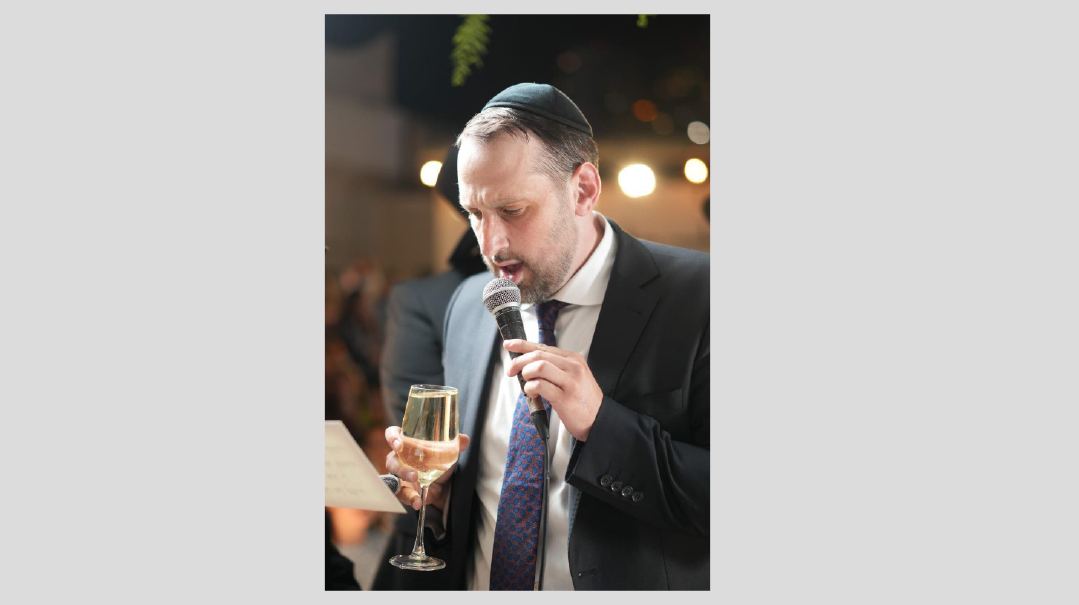The Aging Priests of Atheism

Sometime in the last few years, we passed peak atheism and the shine went off godlessness in the modern world

Democracy, I like to think, is best thought of as an iceberg. The sound and light of elections have the onlookers transfixed, but they’re only the visible surface. The great mass of cultural and social movements silently underpinning it is where all the action happens.
To apply that analogy to the most astounding election cycle in recent memory: We’re all gripped by Donald Trump’s triumphant return to the White House, but deep below the surface, a rightward cultural shift is the real story.
And inside that course-correction, one unnoticed story — a mere chip of submarine ice, really — may have an outsize, long-term impact.
I’m talking about the tentative signs of a revival in faith among intellectuals, the most stubbornly secular class in the West. It’s hard to capture exactly when a zeitgeist changes, but it seems that sometime in the last few years, we passed peak atheism and the shine went off godlessness in the modern world.
If true, this newfound elite faith is the culmination of a process that took a couple of centuries, and whose unfolding is part of the Divine Hashgachah bringing the world to a better place.
In “How Intellectuals Found God,” a recent essay by Free Press reporter Peter Savodnik, a collection of writers and thinkers talk about their growing embrace of belief. These are no B-listers, culled as part of an exercise in outreach apologetics.
Instead, “Some of our most important philosophers, novelists, and public intellectuals are now reassessing their contempt for religion, wondering if they might have missed something,” writes Savodnik.
Some names from the worlds of entertainment and letters didn’t mean much to me. Others — such as celebrity philosopher Jordan Peterson and tech investor Peter Thiel — did.
There was a time not long ago when atheism was cool — first countercultural, and then the default belief of enlightened 21st century culture itself. To believe in G-d, the New Atheists preached, was childish and irrational. The first to agree would have been Silicon Valley’s uber-rationalists — the kind of rich geeks who think it a good use of their gelt to avert terrestrial overpopulation by heading for Mars. Strangely, some of these influential tech bros seem to have left strict atheism behind.
Tech philosophers aside, the centerpiece of the trend seems to be the remarkable conversion of world-famous writer Ayaan Hirsi Ali, and the concurrent bafflement of Richard Dawkins, ridiculer-in-chief of modern belief.
Ali, who immigrated as a child to the Netherlands, famously rejected Islam and wound up as a militant atheist, before becoming a member of the Dutch parliament on an anti-Islam platform. But having grown up with belief, she was adrift, and then post-October 7 had an epiphany triggered by the Jewish response.
“What I find with my Jewish friends was this blind faith in Israel and the existence of Israel — there will be a home for the Jewish people,” she said. “They are immersed in these biblical stories. It’s a story of faith.”
In November 2023 she wrote a groundbreaking essay documenting her break with atheism. In response, evolutionary biologist and atheist evangelical Richard Dawkins was moved to deploy his considerable lip-curling scorn for anything nonempirical against her newfound religiosity.
“Seriously, Ayaan?” he began, adding, among other choice arguments that, “Someone of your intelligence does not believe you have an immortal soul, which will survive the decay of your brain.”
The Dawkins riposte had a certain “Et tu, Ayaan?” flavor to it. A generation ago, people like him were on the ascendant. There is simply no way that household names like podcaster Joe Rogan and Elon Musk would have been caught talking — however casually — of some openness to the Divine, as Savodnik documents. So to see Richard Dawkins — that scourge of belief — agog in this way highlights the fading relevance of what he stands for.
With the caveat that this is a small sampling, these intellectual debates suggest that something profound is happening. The West’s centuries-long drift from faith has its roots in intellectuals’ collective belief that science and reason held the answers for humanity. That highwater mark has emphatically been passed, and we’re in an age that’s grappling once again with faith.
What triggered this rethink? Savodnik’s interviewees focus on the atomization and meaninglessness of a digital-age society, contrasted with the spiritual experience of religion.
I would put it differently. Rav Samson Raphael Hirsch says that the process by which Hashem brings the world to its tikkun is not by direct intervention, but through the nature of evil itself, which is programmed to self-destruct.
In Mizmor Shir Leyom HaShabbos (Tehillim 92), he notes the unusual grammar employed when describing the fleeting success of the wicked. “Bifroach reshaim kemo eisev — When evildoers flourish like grass,” the verse says, “lehishamdam adei ad — it’s for their eternal destruction.”
The use of the passive, notes Rav Hirsch, indicates that there is no need for Divine intervention — Hashem doesn’t have to actively destroy corruption. “Without morality a society can’t endure — this is the regime that G-d created,” he writes.
One hundred forty years after these prophetic words were penned, we’re now watching what the great Seer of Judaism’s clash with modernity meant.
The timing of the intellectual disaffection with secularism isn’t coincidental: It’s part of a cultural backlash against the insanity of wokeness, that diseased evolution of secular liberalism.
All around us is evidence of an entire culture in terminal decline. The pillaging of the West’s intellectual heritage; Ivy League faculty behaving like Maoist Red Guards; the climate cult; the Molech-like mutilation of children — these are manifestations of derangement.
From the distance of our own society semi-walled off from the wider madness, we’ve grown inured to it. But some of those actually bearing the full brunt of what’s happening are now in open revolt.
The sheer grotesqueness at the heart of a hollowed-out secularism has exposed the creed for what it always was — a bankrupt ideology that ghosted along for decades on the fumes of the West’s long-vanished faith.
Strangely enough, if secularism would have stayed at its turn-of-the-century level, it might have endured. But the nature of evil, as Rav Hirsch says, is to push ever forward. And the final, 2020s iteration of secularism is collapsing under the weight of its own extremism.
None of this means that the progress of Western faith will be linear; the modern world’s materialism and dissipation run very, very deep. But it feels like a corner has been turned. The suffocating skepticism of yore has been replaced with something more open.
There’s a scene in Rabbi Zelig Shachnowitz’s classic book, The Jewish Kingdom of Kuzar, that imagines the downfall of the old paganism as the Kuzari king embraces Judaism. In the abandoned temples of the gods, only the High Priest and a few acolytes remain, wistfully recalling glories past.
As our world moves on, the aging apostles of atheism increasingly resemble those priests, preaching a creed that is now on the wane. The political turmoil we see all around us is part of a reset — long may the blessed backlash continue.
(Originally featured in Mishpacha, Issue 1045)
Oops! We could not locate your form.







